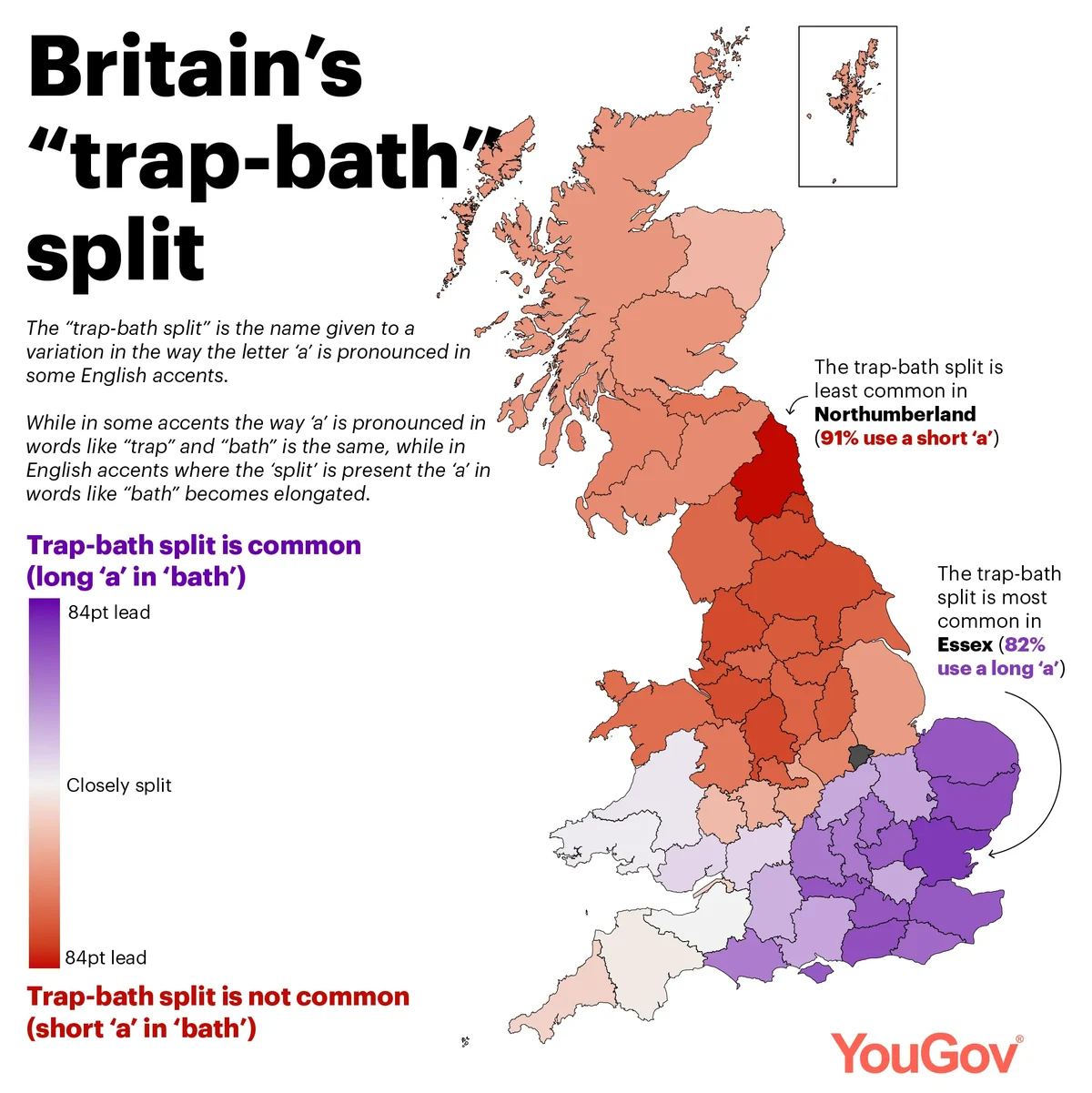The “trap-bath split” is the name given to a variation in the way the letter ‘a’ is pronounced in certain English accents. The general idea is that in some accents, the way ‘a’ is pronounced is the same in words like “bath” as they are in words like “trap”, while in other accents the ‘a’ in words like “bath” becomes elongated.
Now a new YouGov study of 51,000 Britons shows how common each pronunciation is.
In order to get at this subject without having to show people pronunciation symbols like æ and ɑː, we reduced our question to the following: How do you pronounce the ‘a’ in the word 'bath'? With the same pronunciation as the ‘a’ in ‘that’, or with the same pronunciation as the ‘a’ in ‘arm’.
The results show that the trap-bath split occurs among 43% of Britons i.e. they use a long a like the a in ‘arm’ when they say words like “bath”.
Meanwhile the trap-bath split does not occur among 52% of Britons, who use the same, short, a in “bath” as they do in “trap”.
Mapping the results across Britain shows that the trap-bath split is much more common in the South of England than it is in the rest of the country.
Essex is the capital of the trap-bath split, with 82% in the county saying they pronounce the a in ‘bath’ in the same as they do the a in ‘arm’. Nearby Suffolk and Berkshire come in second and third, on 80% and 79%, respectively.

By contrast, the area of Britain where the trap-bath split is least likely to occur is Northumberland, where fully 91% say they pronounce the a in ‘bath’ in the same way they pronounce the a in ‘that’. This pronunciation is likewise dominant in neighbouring Tyne and Wear (86%) and Durham (83%).
While there is a clear North-South split, the West Country also stands out as unique, being much more closely divided. In Somerset and Devon in particular, there is an almost even split between people whose accent includes the trap-bath split and those who do not.
When it comes to Wales and Scotland, we have grouped council areas into larger regions as not all county areas are populous enough to provide usable sample sizes for this study.
The results show that Wales has its own North-South split, with the trap-bath split much less common in North Wales (20%) than it is in Mid and South Wales (46-53%).
In Scotland, by contrast, the trap-bath split is in the minority across the whole country, ranging from 29% in Aberdeen and North East Scotland to only 19% in Glasgow and Strathclyde.
How do you feel about the topic of accents and dialect, other regional habits, and everything else? Have your say, join the YouGov panel, and get paid to share your thoughts. Sign up here.
Photo: Getty









